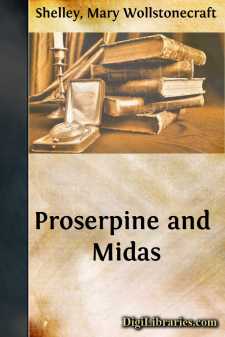Drama Books
Sort by:
by:
Augustus Thomas
AUGUSTUS THOMAS (Born, St. Louis, Mo., January 8, 1859) It is not a new thing for a dramatic author to write prefaces to his plays. We are fortunate in possessing a series of personal opinions in this form that constitute a valuable asset in determining individual attitude and technical purpose. Read Schiller's opening remarks to "The Robbers," Victor Hugo's famous opinions affixed to...
more...
by:
Horace Holley
INTRODUCTION The first two or three of these "plays" (I retain the word for lack of a better one) began themselves as short stories, but in each case I found that the dramatic element, speech, tended to absorb the impersonal element of comment and description, so that it proved easier to go on by allowing the characters to establish the situation themselves. As I grew conscious of this...
more...
by:
Alfred Noyes
RADA SCENE—_A guest-chamber, the typical living-room of a prosperous village doctor in the Balkans. On the left, a small window and an entrance door. On the right, a door leading into a bedroom. At the back, an open fire of logs is burning brightly. Over the fireplace is the eikonostasis, with three richly coloured and gilded eikons, the central one of the Madonna. The light, which is never allowed...
more...
by:
Bernard Shaw
As will be seen later on, Pygmalion needs, not a preface, but a sequel, which I have supplied in its due place. The English have no respect for their language, and will not teach their children to speak it. They spell it so abominably that no man can teach himself what it sounds like. It is impossible for an Englishman to open his mouth without making some other Englishman hate or despise him. German...
more...
by:
Moliere
PROLOGUE. The front of the stage represents a rustic spot, while at the back the sea can be seen in the distance. SCENE I. Flora. appears in the centre of the stage, attended by Vertumnus, god of trees and fruit, and by Palemon, god of the streams. Each of these gods conducts a troup of divinities; one leads in his train Dryads and Sylvans, and the other River Gods and Naiads. Flora sings the...
more...
INTRODUCTION. I. ‘The compositions published in Mrs. Shelley’s lifetime afford but an inadequate conception of the intense sensibility and mental vigour of this extraordinary woman.’ Thus wrote Dr. Garnett, in 1862 (Preface to his Relics of Shelley). The words of praise may have sounded unexpectedly warm at that date. Perhaps the present volume will make the reader more willing to subscribe, or...
more...
by:
Upton Sinclair
ACT ISCENE I[Shows a primeval forest, with great trees, thickets in background, and moss and ferns underfoot. A set in the foreground. To the left is a tent, about ten feet square, with a fly. The front and sides are rolled up, showing a rubber blanket spread, with bedding upon it; a rough stand, with books and some canned goods, a rifle, a fishing-rod, etc. Toward centre is a trench with the remains...
more...
by:
Bernard Shaw
The forenoon of the first of April, 1911. General Mitchener is at his writing table in the War Office, opening letters. On his left is the fireplace, with a fire burning. On his right, against the opposite wall is a standing desk with an office stool. The door is in the wall behind him, half way between the table and the desk. The table is not quite in the middle of the room: it is nearer to the...
more...
MAJOR ROBERT ROGERS (1727-1795) Robert Rogers, a soldier of fortune, is the Davy Crockett of Colonial times. Born at Dumbarton, New Hampshire, on November 17th (some authorities say 1730, another 1731, while the Dictionary of National Biography says 1727), he was the son of James Rogers, a farmer living in a frontier cabin at Methuen, in upper Massachusetts. Robert's boyhood was spent in an...
more...
by:
Thomas Constable
INTRODUCTORY NOTE Pierre Corneille was born in Rouen in 1606, the son of an official; was educated by the Jesuits, and practised unsuccessfully as a lawyer. His dramatic career began with the comedy of "Melite," but it was by his "Medee" that he first proved his tragic genius. "The Cid" appeared in 1636, and a series of masterpieces followed—"Horace," "Cinna,"...
more...











